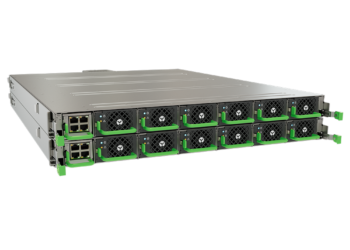Generative AI (GenAI) is among the most groundbreaking innovations powered by large language models (LLMs). These advanced AI systems can produce human-like responses, create unique content, and extract actionable insights.
However, despite its capabilities, GenAI’s true potential has yet to be fully realised. The key isn’t just refining algorithms or expanding computational power—it lies in democratising access to data. In the GCC, where industries are evolving rapidly, this approach can drive measurable business outcomes and position the region as a global leader in the AI revolution.
The Foundation of GenAI: Why Data Matters
GenAI operates by analysing and synthesising vast datasets, often from publicly available sources like websites, books, and forums. While impressive, there’s an inherent limitation to this capability: public data is often incomplete, outdated, or irrelevant for specific, business-critical needs.
For example, while an LLM trained in public content may excel at answering general queries, it struggles to provide contextually relevant or real-time insights. This gap highlights the need to integrate private, structured, and real-time data into AI processes—a process we call data democratisation.
Data Democratisation: Unlocking the Next Frontier
Data democratisation involves breaking down silos and making information accessible, actionable, and secure across an organisation. In the GCC, where industries like logistics, finance, and government are key drivers of economic growth, democratised data access can supercharge GenAI’s impact.
Dubai is an example where data democratisation is increasingly being adopted across forward-thinking businesses and organisations. As a global logistics hub, it is essential to have democratised access to real-time data to efficiently manage supply chain processes and address critical issues. With data democratisation, logistics companies can predict disruptions, optimise routes, and improve cost efficiency. Imagine a fully optimised system where packages move seamlessly across borders, minimising delays and reducing costs.
In KSA, the financial sector is navigating a complex regulatory landscape while experiencing rapid growth. Democratised access to accurate, up-to-date data empowers financial institutions to stay compliant, streamline operations, and innovate. With real-time insights, they can respond faster to changing regulations and market conditions, ensuring long-term stability and growth.
Measurable Benefits of Data Democratisation
Organisations that prioritise data democratisation combined with GenAI adoption consistently report significant improvements in productivity, decision-making, and customer experience:
- Productivity Gains of Up to 30%: When employees have access to the right data at the right time, workflows become faster, more efficient, and less error-prone.
- Accelerated Decision-Making: Real-time insights empower leaders to make informed decisions quickly, which is especially valuable in fast-paced sectors like logistics and finance.
- Enhanced Customer Experiences: With personalised, real-time interactions powered by GenAI, businesses can offer tailored solutions that delight customers and build loyalty.
For businesses in the GCC, these benefits translate to higher profitability, greater agility, and a competitive edge in global markets.
Responsible AI Governance: Balancing Innovation with Security
While the potential of GenAI is immense, it also comes with risks. Public data limitations, data privacy concerns, and the possibility of inadvertently exposing sensitive information are just a few challenges businesses face.
The GCC’s Leadership in Responsible AI
The GCC has taken proactive steps to address these challenges, crafting some of the most progressive AI governance frameworks globally. The UAE’s Personal Data Protection Law (PDPL) is an outstanding example. Modeled after the GDPR, this law ensures that data privacy is safeguarded while enabling innovation. By prioritising local needs, the PDPL balances international standards with regional priorities.
In addition, the Saudi Data and Artificial Intelligence Authority (SDAIA) is setting benchmarks for ethical AI integration, ensuring that innovation doesn’t compromise security or trust.
These frameworks provide businesses in the region with a secure environment to adopt GenAI confidently. By ensuring that innovation and compliance go hand-in-hand, GCC governments are paving the way for responsible AI-driven growth.
Overcoming Public Data Limitations with RAG
Despite its sophistication, GenAI trained on public datasets faces notable challenges:
- Lack of Relevance: Models may fail to capture specific organisational needs or provide real-time insights.
- Outdated Knowledge: AI models only know what they’ve been trained on, which can quickly become obsolete in dynamic industries.
- Security Risks: Without proper safeguards, integrating sensitive business data with GenAI is a significant risk.
To address these issues, businesses are increasingly turning to Retrieval-Augmented Generation (RAG).
RAG: A Revolution in AI Integration
RAG combines the generative capabilities of LLMs with private, structured data sources, ensuring that AI outputs are accurate, timely, and secure. Among its key benefits are:
- Real-Time Access: By connecting GenAI to private databases, RAG ensures that AI outputs are always relevant and up to date.
- Cost Efficiency: Businesses no longer need to retrain expensive models on proprietary data, reducing costs and speeding up deployment.
- Enhanced Security: Sensitive information is used in a controlled environment, minimising risks while maximising utility.
For example, a financial institution in Riyadh could use RAG to analyse private customer data in real time, providing personalised investment recommendations while adhering to strict privacy regulations.
The GCC: A Global Model for AI Adoption
The GCC’s emphasis on digital transformation, supported by progressive regulations and innovative technologies like RAG, positions it as a global leader in AI adoption. The region’s commitment to balancing innovation with security has enabled businesses to harness GenAI’s potential confidently.
Democratised data and GenAI integration have transformed operational efficiency in industries like logistics and finance by as much as 30 per cent [SOURCE]. Additionally, GCC organisations are making quicker, more informed decisions with real-time data access. As well, companies in the region are utilising personalised, AI-driven solutions to delight customers and driving loyalty across sectors.
By championing data democratisation and responsible AI governance, the GCC is setting a benchmark for the world to follow.
Let’s Shape the Future Together
By breaking down barriers to data access, integrating cutting-edge technologies like RAG, and aligning with regional regulations, we can drive transformative outcomes across industries. Let’s work together to build a smarter, more efficient, and customer-centric future for your organisation.










Discussion about this post